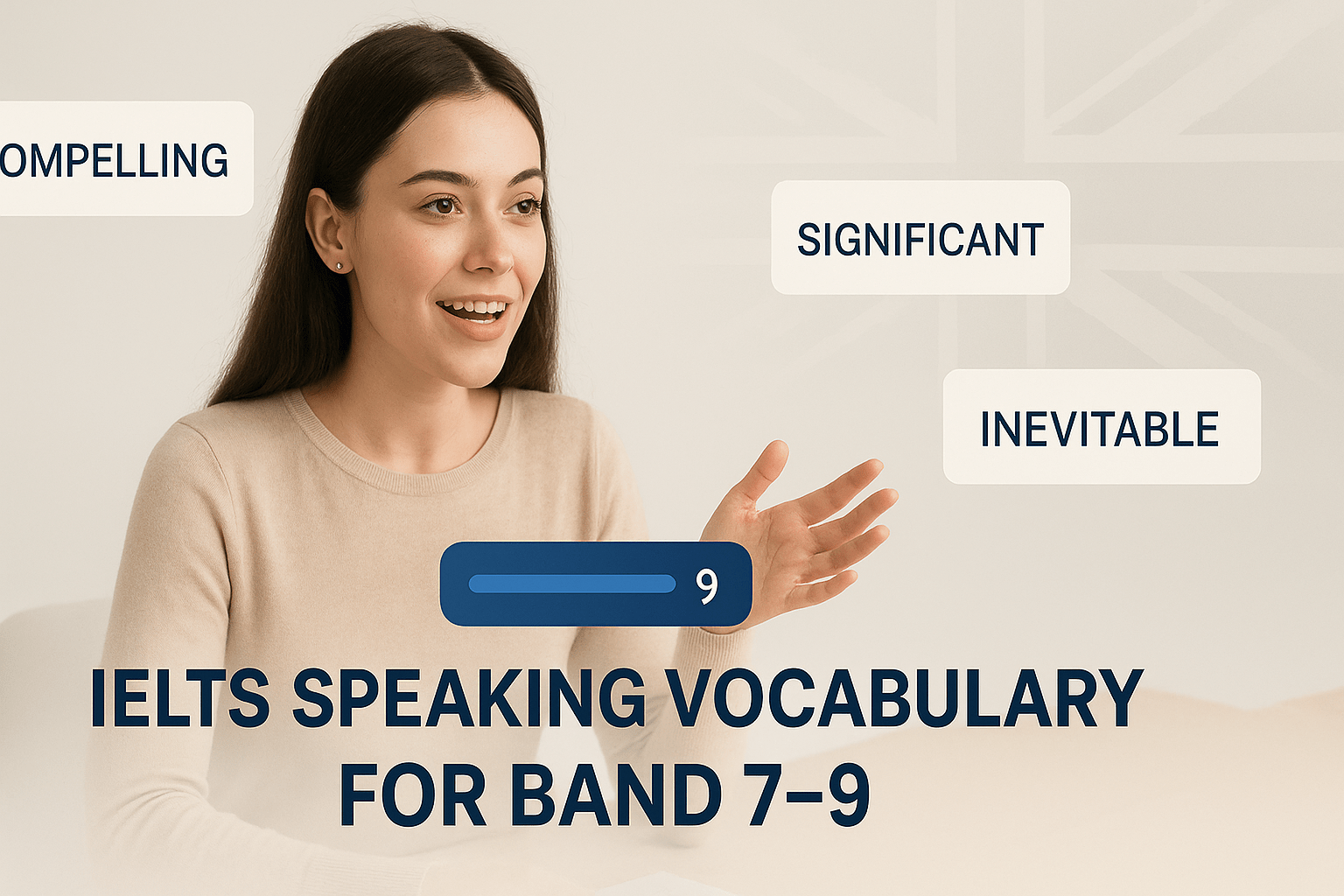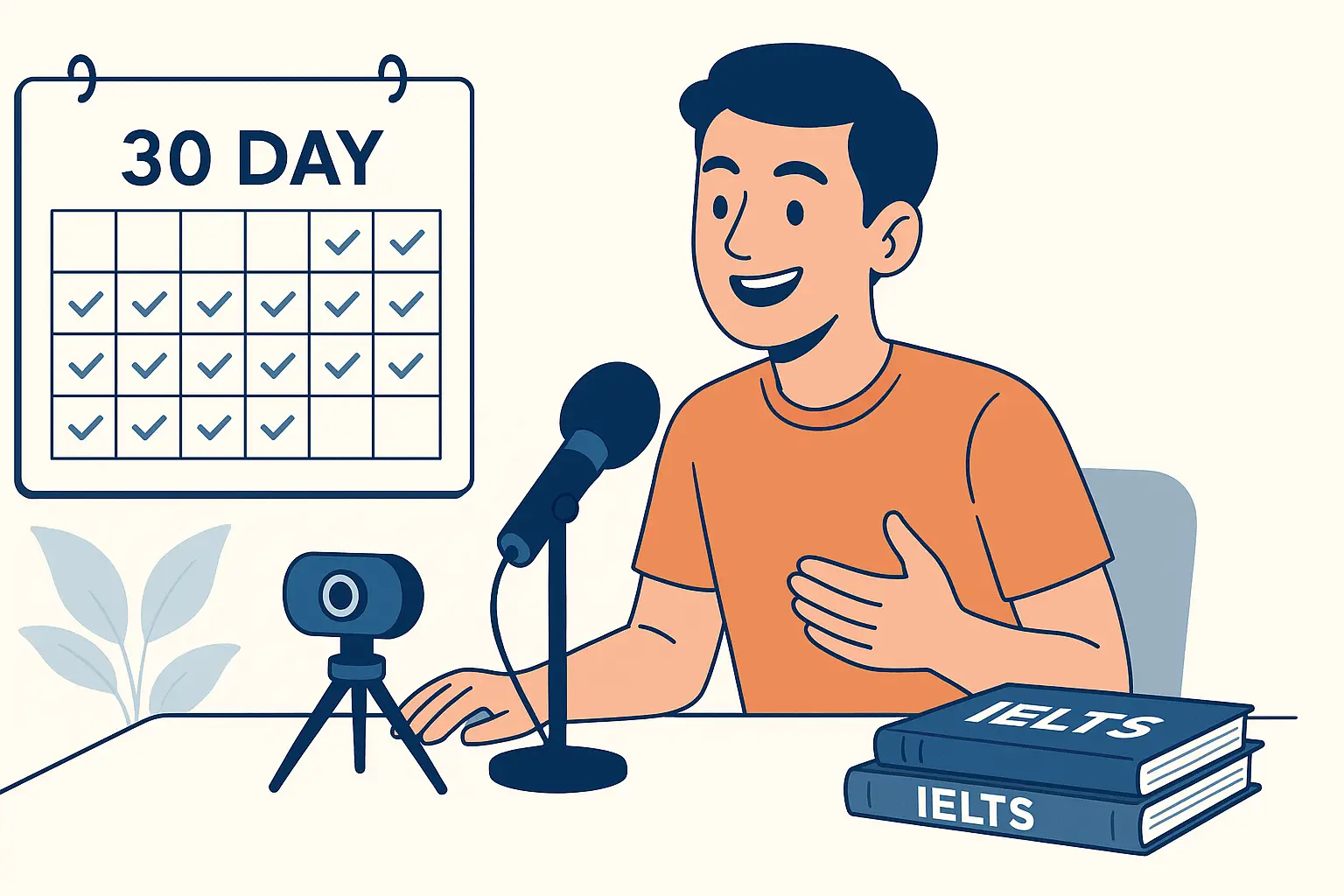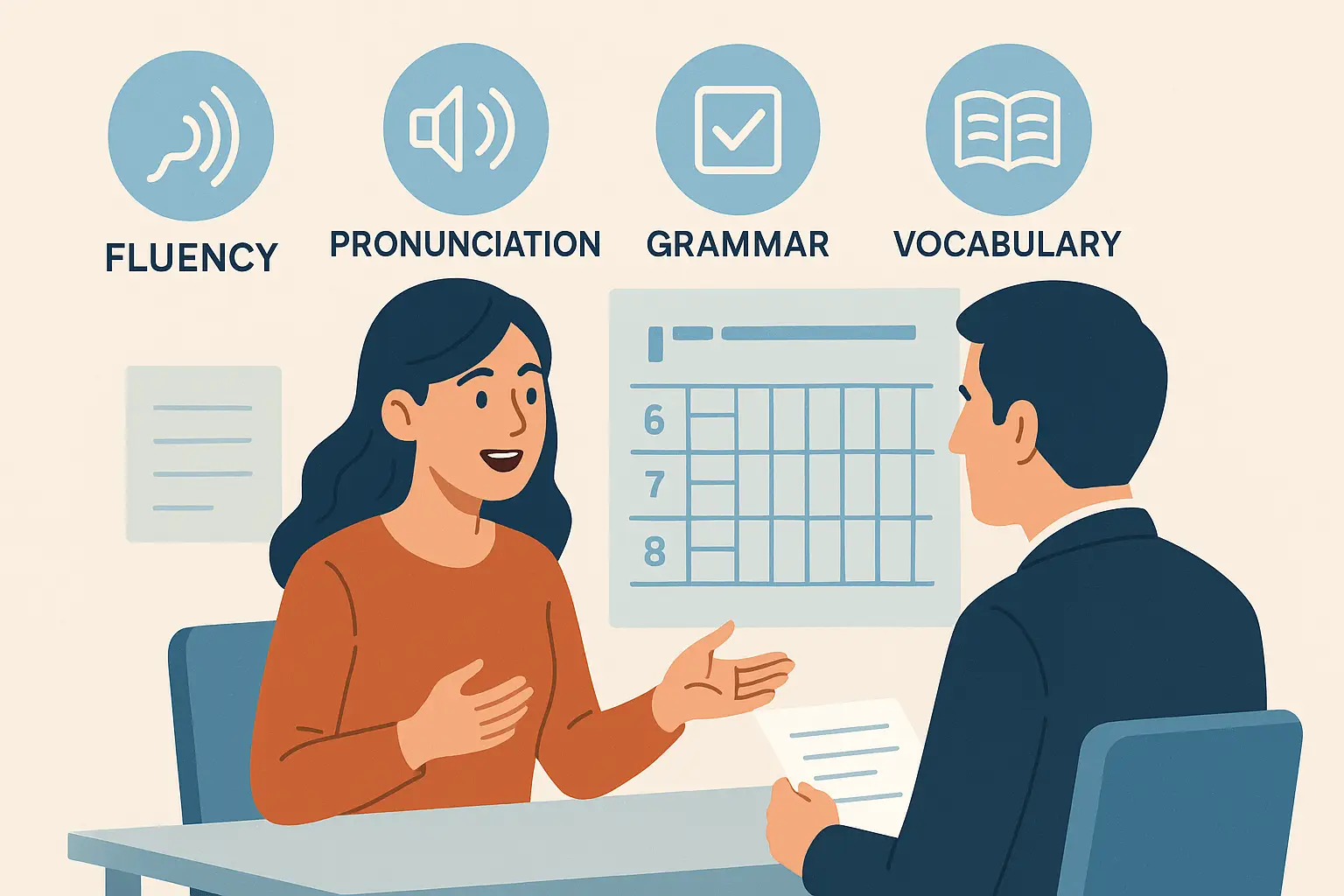As an international IELTS teacher working with students from over 20 countries, I’ve seen firsthand how powerful vocabulary can make or break your IELTS Speaking score. Many of my students come to me frustrated — they speak fluently in everyday situations but stumble during the exam because they lack topic-specific vocabulary or natural-sounding expressions. If you’re aiming for Band 7, 8, or even Band 9, mastering IELTS Speaking Vocabulary is not optional — it’s essential.
Why Vocabulary Is the Key to Higher Bands
One of the most common challenges I hear from students is:
“I understand the question, but I can’t find the right words to answer naturally.”
That’s exactly where IELTS Speaking Vocabulary becomes crucial. It’s not just about using big words. It’s about using precise, high-frequency academic collocations, idiomatic phrases, and topic-specific vocabulary that match IELTS examiner expectations.
For example, when discussing climate change, instead of saying “It’s very bad”, a Band 8–9 student might say:
“The environmental consequences of unchecked industrialisation are truly alarming.”
Same meaning, but a world apart in expression and impact.
You can explore more vocabulary-building strategies in my detailed guide: IELTS Speaking Vocabulary & Expressions Guide
The Real Reason Many Students Stay Stuck at Band 6.5
In many of my mock test sessions, I notice students repeating basic words like “good,” “bad,” “big,” “small,” across every topic — whether they’re discussing education, health, or technology. Repetition kills your lexical resource score. And lack of variety is a red flag for Band 7+.
To fix this, I encourage my learners to build topical vocabulary banks and practise using natural collocations. For instance:
| Basic Word | Upgrade for Band 7–9 |
|---|---|
| good idea | viable solution, sound proposal |
| big problem | significant concern, major challenge |
| small chance | slight possibility, minimal likelihood |
Collocations and Expressions That Impress Examiners
Examiners don’t just listen for big words — they listen for the right combinations. Here are a few high-scoring collocations I often recommend:
Topic: Technology
- cutting-edge innovation
- data-driven society
- digital dependency
Topic: Health
- mental well-being
- sedentary lifestyle
- healthcare accessibility
Topic: Education
- lifelong learning
- academic pressure
- holistic development
Practice these with your own answers. Don’t memorise — personalise. That’s how you sound authentic and fluent.
How to Apply Vocabulary in Each Speaking Part
Part 1 – Daily Life, Simple Topics
This is where students often underestimate the value of advanced vocabulary. Even talking about your hobbies, you can upgrade:
“I enjoy photography because it helps me capture meaningful moments and express my creative vision.”
Part 2 – Long Turn (Cue Card)
This part demands fluency and depth. Vocabulary helps you stretch your answer naturally:
“I’d like to talk about a book that resonated deeply with me. It’s a gripping narrative that explores the complexities of human behaviour.”
Part 3 – Abstract Discussion
Here, your vocabulary must match the formal, academic tone of the questions.
“I believe governments have a moral obligation to invest in education, as it fosters socioeconomic development and promotes equal opportunities.”
Want more support with all 3 parts? Start here: IELTS Speaking Complete Guide
My Global Learners: Real Struggles and Proven Fixes
One of my students from Brazil once said,
“I know the ideas in my head, but I can’t say them smartly.”
Together, we built vocabulary lists based on her real-world topics — education, fitness, urban life — and practised paraphrasing. Within 4 weeks, her Speaking score jumped from Band 6.5 to 7.5.
I’ve seen similar results from learners in Vietnam, Egypt, and Spain. The secret? Consistent, topic-based vocabulary practice with real feedback.
And remember: all of this aligns with official standards from IELTS.org, British Council, and IDP.
FAQ: IELTS Speaking Vocabulary
Q1: How much vocabulary do I need for IELTS Speaking?
You don’t need thousands of words. Focus on 200–300 topic-specific words, high-utility academic phrases, and about 50 solid collocations across common topics.
Q2: Should I use idioms?
Yes, but only if you can use them naturally. Forced idioms sound robotic. Instead of cramming “every cloud has a silver lining”, try natural expressions like “a steep learning curve” or “hit the ground running.”
Q3: Can I repeat vocabulary across answers?
Yes, but with variation. Use synonyms and paraphrasing to show range. For instance, instead of repeating “important,” rotate in “crucial,” “essential,” “vital,” and “key.”
Q4: Where can I find reliable vocabulary resources?
You can always explore IELTS Speaking Vocabulary & Expressions Guide or check the official resources from IELTS.org and IDP.
Ready to upgrade your speaking score?
Start building your vocabulary by topic, rehearse real responses, and aim for clarity, precision, and natural expression — the hallmarks of a Band 7–9 speaker.






One Response